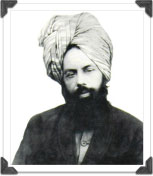When a Khalifa in the person of Hadhrat Adam (as) was sent by Allah, the angels showed their obedience and only Satan, the accursed “refused and acted with arrogance” (2:31-35). Likewise, whenever a Messenger of Allah appears in the world, only a few lucky souls will display their angelic nature and enlist themselves to follow the new Messenger and help the cause of Allah. On the other hand, inebriated with devilish instincts, most people of the time will usually reject the Message of Allah.
When Hadhrat Ahmad (as) appeared at the turn of the 14th century as the Khalifa of Allah and Mujaddid of the Era, he was vehemently opposed by the people. Reflecting on this phenomenon of opposition, he observed: “Whenever a Servant of God appeared at the turn of every century as a Reformer, the ignorant people vehemently opposed him and strongly detested any attempt to correct the errors which had become a part of their habit and custom”. (Lecture Sialkot
The members of the Jamaat of the Promised Massih (as) witnessed all these kinds of persecutions in their own life when they initially joined the Jamaat. They were accused of not having real faith in the spiritual message of Islam and the Holy Prophet Muhammad (sa) and of creating new divisions within the wider Muslim community and of forming a new religion. In every day life of ordinary believers, the trials took different forms and manifestations. Husbands were forcibly separated from their wives and children because they joined the new Jamaat, following the call of their heart and spiritual conscience. Even the judicial institutions of the country witnessed and testified to the struggles mounted by the new disciples in the pursuit of their human dignity and basic rights in the face of such deprivation of conjugal rights by the ignorant masses and their brain-less leaders.
The Holy Qur’an records many such incidents in the ebb and flow of history and from the life of Prophets, including the life of the Holy Prophet Muhammad (sa). The arrogant lot who contemptuously reject the Message will invariably seek to harm and hurt and persecute the followers of the new Messenger. Inevitably, the disciples of Prophets have to endure great hardships and life-altering trials at the hands of their senseless opponents. Allah’s eventual treatment of such arrogance and hubris is also a well known lesson in history: the arrogant shall bite the dust and the Messenger and his disciples shall prevail over the world with help and succor of Allah.









